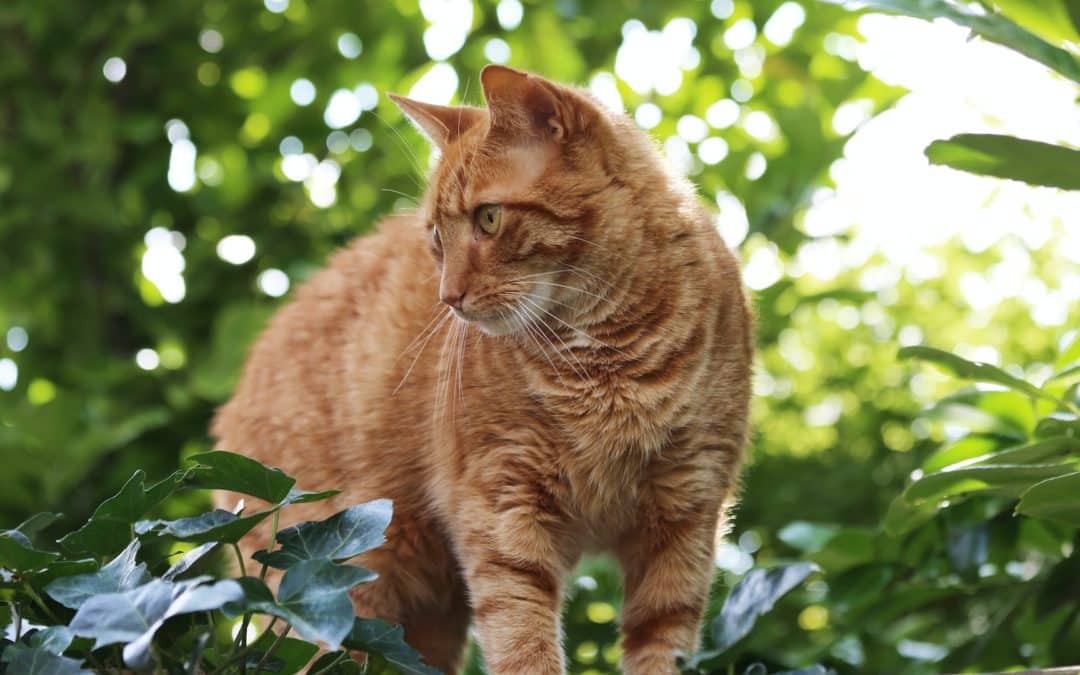Did you know cats and tigers are related? Domestic cats split from their wild ancestors nearly 11 million years ago. However, like your caffeine addiction, some things are hard to break away from. Your furry feline is still a lot like the tigers at the zoo—yes, even that tiny little kitten. Let’s take a closer look at some of the similarities between cats and tigers.
How Are Cats and Tigers Related?
House cats and tigers share almost 95% of the same DNA. This startling discovery comes from researchers who are working to save big cats around the world. One such cat is the Siberian tiger.
There are estimated to be less than 4,000 Siberian tigers living in the wild. With so few tigers remaining, one illness in the population or a break in their food supply could lead to the extinction of the entire species.
Sequencing tiger DNA can help give insights into the different ways we can help them, from new breeding programs to vaccinations against illness. This sequencing could help not just the big cats, but their sweet domestic counterparts as well, by giving veterinarians new insights into their genetic makeup.
Four Similarities Between Cats and Tigers
Aside from the size difference, your cat and a tiger have many things in common, from what they eat to how much time they spend napping. Here are four of the main similarities between pet cats and wild tigers.
1. Diet
Both tigers and domestic cats are obligate carnivores, meaning they thrive off of a diet made up of dense proteins like those found in the meat of other animals. Choosing the right diet for your cat will help keep them healthy and happy. Your veterinarian can advise you on the best diet for your cat at your next check-up.
2. Playfulness
When they aren’t sleeping or hunting, cats and tigers are both busy playing. Tiger cubs learn important hunting skills from play, and so do kittens. For house cats who don’t hunt, play is important at all ages to help them fight boredom, build good relationships with their humans, and get enough exercise.
3. Killer Hunting Instincts
Tigers cubs and kittens both start practicing their hunting skills at a very early age. For tigers, hunting is how they get their food and stay alive. Indoor cats use their hunting instincts to chase mice, toys, or bugs.
Outdoor cats, however, use it to hunt small mammals and birds. Unlike their tiger counterparts, outdoor cats do not normally kill for food and are sometimes responsible for changes to their local ecosystems.
4. Sleep
Being one of nature’s most ferocious hunters is a tiring job. Domestic cats and tigers alike will sleep for up to 18 hours a day, if not more. Sleep helps them stay alert and energetic for hunting trips (or for watching wildlife from the window).
Veterinary Care for Your “Little Tiger” in Gilbert, Arizona
All cats need excellent medical care to stay strong and healthy. Bringing your cat to East Valley Animal Hospital for check-ups and illnesses will help you make the best medical decisions for your pet. Our caring and pet loving staff will help you keep your little wild one around for years to come. Contact us today to book an appointment.
Images used under creative commons license – commercial use (1/21/23). Photo by Oscar Fickel on Unsplash.

